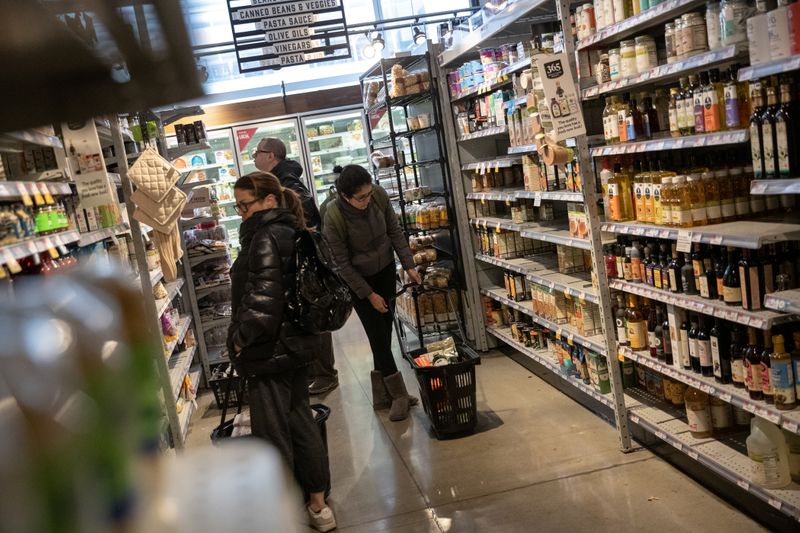WASHINGTON (Reuters) - The U.S. House of Representatives passed a multi-billion dollar aid package early on Saturday that aims to limit the economic damage from the coronavirus pandemic. The Republican-controlled Senate is expected to take it up this week.
Here is a look at major elements of the legislation.
FREE CORONAVIRUS TESTING
The bill would provide free coronavirus testing for those who need it. President Donald Trump's administration has struggled to provide such tests.
The legislation would require private insurers to pay for all testing costs for people to whom they provide medical coverage. It also would cover testing costs for people who receive healthcare through government programs such as Medicare and Medicaid.
It would provide $1 billion to the Disaster Medical System to cover costs for people without medical insurance, $82 million to the Defense Department, $64 million to the Indian Health Service and $60 million for the Department of Veterans Affairs.
PAID SICK LEAVE AND EMERGENCY LEAVE FOR SOME WORKERS
Roughly a third of U.S. employees, predominantly lower-paid workers, currently do not get paid when they stay home due to illness. Health officials have said the virus could spread more quickly if infected workers feel like they cannot afford to stay home without pay.
The bill would require governments and private businesses that have fewer than 500 employees to provide up to two weeks of paid sick leave - paid at the employee's regular rate - if they miss work due to coronavirus. Employees would be paid at two-thirds of their regular pay if they have to care for a sick family member, or if they need to care for a child whose school or day-care provider has closed.
Workers could take another 10 weeks off, if needed, at two-thirds pay under the legislation.
Businesses would be able to claim refundable tax credits to cover the expense, which would reduce the payroll taxes they pay into the Social Security retirement fund. The shortfall would be covered by transferring money from general U.S. funds.
The Labor Department could exempt companies with fewer than 50 workers if it determines that they risk going out of business.
Self-employed workers would also be able to claim a refundable tax credit to cover sick-leave costs.
The bill would not apply to large employers like McDonald's Corp that do not provide paid sick leave. House Speaker Nancy Pelosi, the top Democrat in Congress, said on Twitter that such companies should pay for those benefits out of their own pockets. Some large employers, including Walmart (NYSE:WMT) Inc and Darden Restaurants (NYSE:DRI), have announced they will do so.
The bill would not establish the permanent paid sick-leave benefit that Democrats have long sought. It would only apply to coronavirus-related illnesses, and would last only through the end of the calendar year.
ENHANCED UNEMPLOYMENT BENEFITS
The bill would cover all costs for states that extend unemployment payments for six months beyond the usual time limit, which is six months in most states. States would also get $1 billion to cover the additional administrative costs.
The benefit would apply only to states that see their unemployment rates rise by at least 10 percent. They also would get interest-free loans, if needed, to cover benefit costs under the bill.
It also would encourage employers to avoid layoffs by reducing employees' hours instead. Affected employees would get unemployment benefits to offset lost wages.
FOOD ASSISTANCE
The bill would strengthen several programs that help feed low-income Americans. It would provide $250 million to give 25 million home-delivery meals to seniors, $400 million for food banks, $500 million to help feed mothers and young children and $100 million to territories such as Puerto Rico and Guam.
It would allow schools that produce free breakfast and lunch to low-income students to distribute those meals to go, rather than requiring the students to eat in a cafeteria.
The bill would suspend work requirements for the "food stamp" program that helps low-income people buy groceries. That would override a new Trump administration restriction, due to kick in on April 1, that would have cut off benefits for 700,000 childless, able-bodied adults who are not working.
INCREASE FUNDING FOR LOW-INCOME HEALTH INSURANCE

The package would increase federal funding for Medicaid, the healthcare program for the poor, which typically experiences increased enrollment during economic downturns. The Trump administration has sought to scale back Medicaid, so far without success.